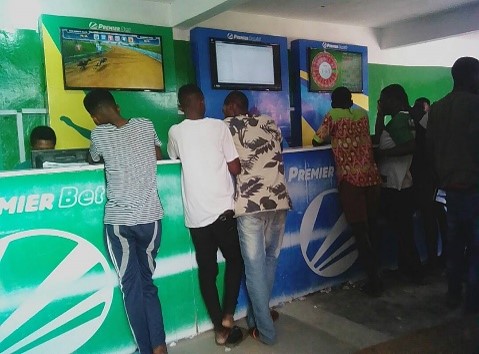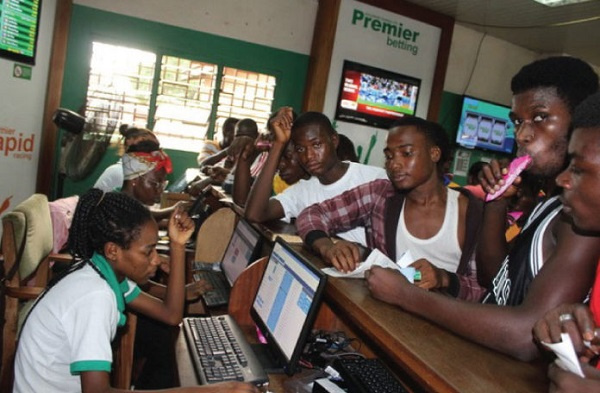Ghanaians cherish sports, particularly football. It is woven into the very fabric that makes a Ghanaian.
It, therefore, comes as no surprise that the country’s youthful population has taken passionately to sports betting as an avenue to indulge in their football fantasies.
In fact, this has made the country one of the fastest-growing sports betting markets in Africa.
Although online betting has been around for a while, during the outbreak of COVID-19, not only were sporting events paused, but many brick-and-mortar establishments were closed to the public, making the need to digitalise. This rapidly accelerated the migration of sports betting from the brick-and-mortar era to a more accessible online epoch.
Due to an influx of mobile devices, an accessible internet connection, and virtual money transfer platforms, it has become very easy for many Ghanaians to bet on games of their favourite teams from all over the world, anywhere, any day.
As a result of these factors, sports betting has quickly become a source of entertainment and sometimes a ‘side income’ for a majority of young adults with internet access in Ghana. More than these, it has become an addiction for those who harbour the notion that it is a quick way to acquire wealth.
Out of 17 million internet users recorded in Ghana in 2022, about 11.18 million people use the internet to access sports betting sites, according to the Cyber Security Authority (CSA).
Some may argue that betting has contributed to the reduction of criminal activities among the youth as it creates an avenue for getting income, but one cannot ignore the fact that many invest heavily without any returns.
Like any addiction, the need for a quick fix has led many bettors to sway from the fun and entertainment path of betting into heavy debts.
For instance, many school-going punters place bets with money intended for tuition.
The University Relations Officer of KNUST, Dr Daniel Norris Bekoe, later revealed that many students used their school fees for sports betting.
There have also been media reports on workers who used their entire monthly salaries and company finances to play odds in the hope of winning big but unfortunately lost it all.
But in the words of the Irish playwright George Bernard Shaw: “In gambling, the many must lose so that the few may win.”
This seems to be the reality of the online sports betting world. It is a huge financial market globally.

According to Statista, in 2021, the market size of the sports betting and lottery sector worldwide was valued at 194.63 billion U.S. dollars. This figure reflects an increase from the previous year’s total of 172.89 billion. By 2022, the market was forecast to reach 231.33 billion.
There are over 250 sports betting firms around the world that generate approximately 25,240 businesses and employ over 240,000 people.
What is in it for the government?
The Ghana Gaming Commission, the entity in charge of regulating all games of chance, except lotteries in Ghana, currently has 35 sports betting companies domiciled, duly licensed, and operating in the country, even though punters can somehow access over 200 firms globally.
To obtain a sports betting license from the Gaming Commission of Ghana, an operator must have a capital ranging from US$200,000 to US$1 million. The company must pay a license fee of US$40,000(GH¢399,640), while the annual operational fee is US$50,000(GH¢499,551)
The Ghana Revenue Authority(GRA) announced in 2015 that betting companies and patrons of their services were required to pay 17.5% VAT on their returns as the business had begun to boom. In 2021, the Authority announced again that it would tax the operations and the winners to widen the tax net.
The government is obviously making a significant amount of revenue, although no specific numbers have been stated.
Osei Kyei-Mensah-Bonsu, the then caretaker Finance Minister, while presenting the 2021 annual budget, said, “Gaming has become a significant source of government revenue”, but it was estimated that Ghana loses over GH¢300 million ($52,288,650) annually in revenue due to leakages in the sector.

He said the government was to formulate a new policy to improve revenue mobilisation from online gaming.
The betting companies
The number of sports betting companies in Ghana keeps increasing due to the relaxed laws governing the sector compared to other African countries like Kenya.
Even though the country is not in league with the likes of South Africa and Nigeria, the giants, in terms of market size, it is considered one of the biggest on the continent.
For a country of 32 million people to have 35 betting companies, also known as bookmakers, in operation speaks volumes.
These entities have mastered the ability to capitalise on Ghana’s love for football and the rising betting addiction to cash in.
To gain and maintain players on their platforms, the bookers give juicy incentives to new players and rewards for existing bettors. Some promise anonymity to punters on the platforms who want to bet on the ‘low key’.
Others invest in major advertising campaigns on television, radio, and huge billboards and even recruit famous faces to entice punters to their books.
However, bookmakers like betPawa are now very active on the Ghanaian football scene.
As the headline sponsor of the Ghana Premier League for the next three seasons, making donations to the Ghana Gaming Commission and the construction of the betPawa park, the company seems to be contributing significantly to sports development.
One cannot deny that they have provided numerous employment opportunities for the youth in a country riddled with unemployment.
But at what cost to Ghana?
While it is necessary for the government to formulate flexible tax policies that will not chase these companies out of business in the country, it is equally important to check the loopholes to mitigate the downsides of the activity.



